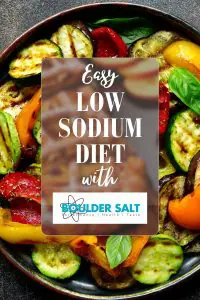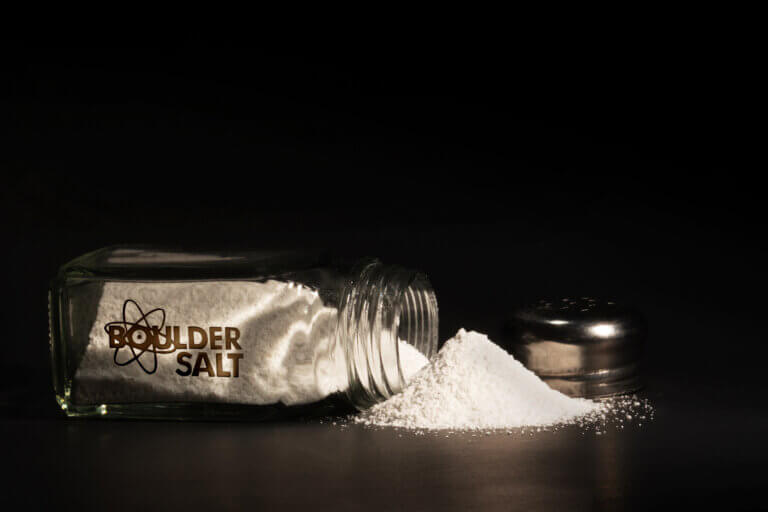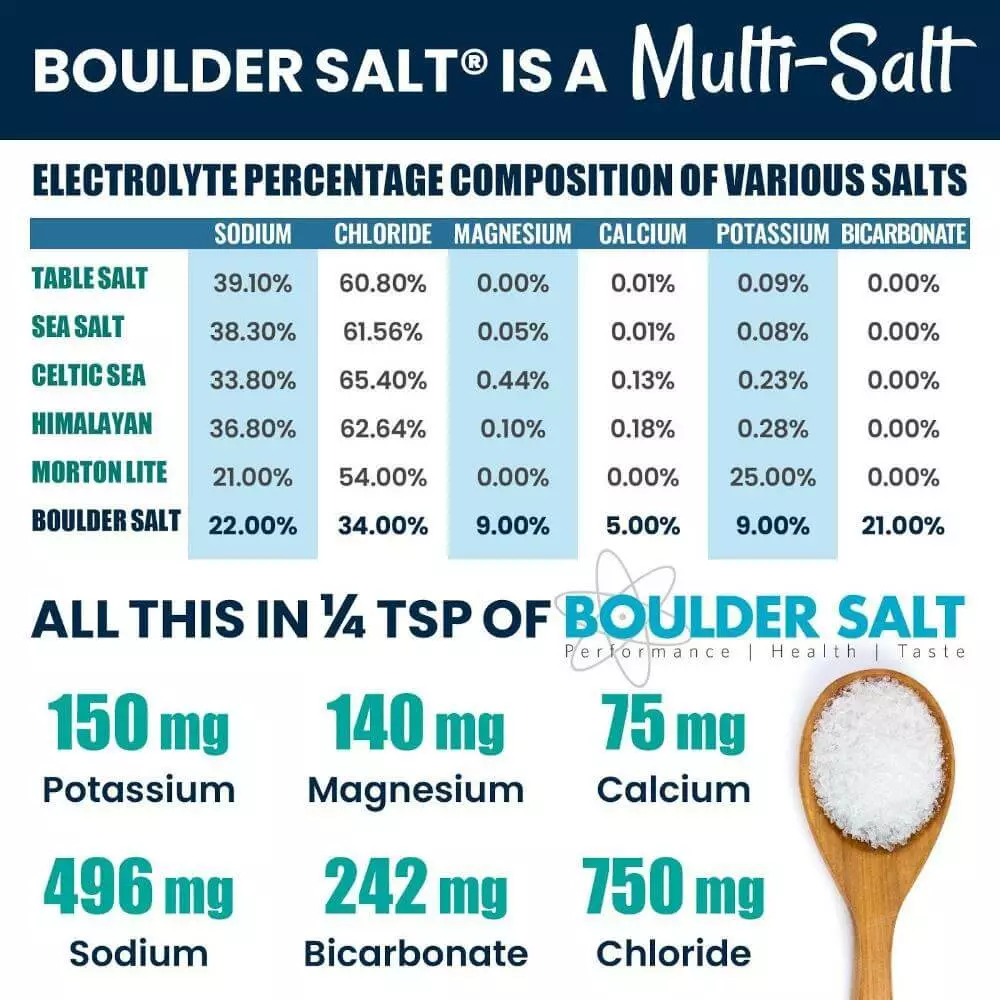Though sea salt is not a good alternative for high blood pressure here’s the Scoop on Salt That Is (and Why You Need It).
What Does Sea Salt and Table Salt Do to Increase High Blood Pressure?
- High blood pressure, also known as hypertension, is the leading cause of premature death worldwide. It is currently estimated that around 31% of adults today have high blood pressure. The average percentages for widespread hypertension have stayed about the same over four decades, only decreasing slightly. (source – NIH) The percentage of adults with high blood pressure is expected to increase soon.
- It is known that table salt and other dietary salts such as sea salt are contributing factors for the rise in high blood pressure. Studies conducted in 2009 suggest that decreasing dietary sodium intake does decrease high blood pressure. (source – NIH) While consuming less salt is one effective strategy in the reduction of high blood pressure levels, a balanced salt offers a healthier approach. It allows you to enjoy a better-tasting salt with less sodium and more health benefits. Sea salt has a high degree of sodium, whereas Boulder Salt has high levels of flavor and no side effects while providing a healthy balance of sodium to other salts making it a true healthy salt alternative.
- Sodium consumption unaccompanied by the appropriate balance of potassium, calcium, and magnesium has been linked to higher blood pressure. So salt in itself isn’t exactly the culprit for hypertension— unbalanced sodium consumption is. Sea salt and table salt have virtually the same amounts of sodium and the same lack of potassium, calcium, and magnesium– the only difference being the size of the salt granules and how they are processed. Sea salt granules are much larger than table salt granules. Often people are fooled into thinking they are consuming less sodium because sea salt is bigger than table salt, but this isn’t the case. Both salts are plagued with the same fault: lack of potassium, calcium, and magnesium .
- Excess sodium increases blood pressure. It is a less known fact that high blood pressure can also lead to kidney disease. (source)
- Sea salt isn’t as processed as table salt, and it contains more trace minerals as a result. However, the minerals contained within aren’t anywhere near the balanced amount you would get from eating whole foods or with this healthy salt alternative.
- The risk of stroke and ischemic heart diseases increases with high blood pressure. So it is important to implement healthy salt alternatives into your diet. Because salt contains vital nutrients that support life, it isn’t recommended to be eliminated. When choosing to consume a healthy amount of salt created under stable and healthy conditions, you choose to give your body the proper building blocks for optimal success and performance. Drinking Boulder Salt is an act of self-care.
Buy Healthy Salt
What ratio of potassium, calcium, and magnesium is Recommended?
The ratio of potassium, calcium, and magnesium that each body needs will vary. Medical professionals generally recommend a 2:1 ratio to calcium and magnesium. A 4:1 ratio is recommended for potassium and calcium.
- Potassium: The daily recommended intake is 4,700 MG
- Calcium: The daily recommended intake is 1000 MG (under 50) and 1200 MG (over 50) ● Magnesium: The daily recommended intake is 300 MG – 400 MG
- Sodium: The daily recommended intake is 2200 MG
Boulder Salt is formulated based on these ratios in the blood, not what is recommended to consume.
How Much Sodium is in a Teaspoon of Salt?
There are around 2325 milligrams in a teaspoon of salt. One serving of Boulder salt tops off at only ¼ of a teaspoon with only 496mg sodium per serving! Four servings of Boulder Salt equals one teaspoon of table salt with much less sodium at 1,984 milligrams.
Next, we talk about the contents of Boulder Salt, breaking down each element and how they work to support the body. We also talk about why it’s a superior healthy salt alternative.
What is Boulder Salt?
*DV = Daily Value
In its essence, Boulder Salt is composed of key minerals in the macro-nutrient dense form of a carefully formulated dietary salt. DV is the recommended Daily Value. They include Sodium (21% DV), Potassium (3% DV), Calcium (8% DV), Magnesium (35% DV), Bicarbonate, & Chloride (32% DV) — all in a quarter of a teaspoon.
Below we explore the function of these key elements within the body as well as why salt is essential (within moderation of course). Keep in mind that the levels of these elements are in the right ratio in boulder salt are instead of the trace amounts found in sea salt, table salt, and pink Himalayan salt.
Sodium (source)
- Is an electrolyte responsible for maintaining fluid and blood volume
- Are a mineral and one of the four elements that compose salt
- Eating too much sodium increases blood pressure
Potassium (source)
- Eating more potassium can decrease blood pressure if you have high blood pressure ● Is an electrolyte responsible for maintaining fluid and blood volume
- Eating too little potassium and too much sodium can increase your blood pressure
Calcium (source)
- Vitamin D Stimulates calcium absorption
- Responsible for blood clotting, the transmission of nerve impulses, muscle contractions, cell membrane stability, and cellular metabolism
- The body holds 1200 MG of calcium, of which only one percent is in the blood ● The remaining 99% is stored in the skeletal system as hydroxyapatite – a mineral that maintains the structural integrity of the skeleton
Magnesium (source)
- Is needed for more than 300 biochemical reactions in the body
- Can help aid and prevent high blood pressure, heart disease, and diabetes ● Helps maintain normal nerve and muscle function and regulates the heartbeat ● Helps the production of energy and protein, maintains blood glucose levels, and supports the skeletal system
Bicarbonates (source)
- Gives blood the ability to resist changes in PH
- Helps to neutralize stomach acids
- Creates an alkaline environment in the body
Chloride (source)
- Aids in fluid balance in the body & blood PH
- Aids in digestion and the prevention of unwanted microbes in the gut ● Regulate fluid secretion, such as the flow of water to mucus
- Is the most abundant electrolyte in bodily fluids (serum) besides sodium
Sodium is essential for fluid regulation in the body, as well as nerve and muscle function. Salt is the major source of sodium and chloride ions in most human diets. Chloride ions are important electrolytes that regulate blood PH and pressure. The salt you get these vital elements from matters greatly to your health. Electrolytes are compounds, often found in the form of a salt. Human beings need these important compounds found in salt. When the human body sweats, it eliminates salt and the only way to replace the important compounds it contains is through diet. Chloride is also very important in the health of the gut microbiome because it helps to regulate stomach acid. The compounds in salt are very important in the human diet, so you should use the healthiest salt for you and the ones you love.
You’ll find all of these essential minerals in balanced macrocosmic form in Boulder Salt.
Why Boulder Salt Is a Healthy Salt Alternative for Patients With High Blood Pressure & Cardiovascular Diseases. (source)
- Increased intake of magnesium and potassium along with a reduction of sodium consumption has been proven to reduce high blood pressure. This method has been proven as effective as taking one antihypertensive drug as part of treatment. The introduction of magnesium increases the effectiveness of all antihypertensive drug classes. Genetic defects that affect magnesium transport are connected with higher blood pressure levels. Magnesium taken orally induced direct and indirect vasodilation, improves endothelial dysfunction, increases nitric oxide, and is a natural calcium blocker.
(This doesn’t mean you should ditch your medication for potassium and magnesium supplements. Always consult your doctor before implementing a new regimen.)
- Boulder Salt contains around 35% of the recommended daily value of magnesium in a quarter of a teaspoon. Three servings a day on meals, in water, blended into your smoothie, or whatever else you can imagine will help you to achieve your daily recommended dose of magnesium while enjoying its superior flavor profile. This is much more convenient and comfortable than shoveling down magnesium tablets.
- In addition to this, its sodium content is low. ¾ of a tablespoon combined puts you at 63% DV for sodium intake.
Is Sea Salt a Good Alternative?
No, Sea salt and table salt have virtually the same amounts of sodium levels present in one another. Neither have anywhere near a healthy balance of electrolytes. This makes sea salt a more expensive but less effective alternative to table salt. If you’re trying to cut back on sodium intake and were wondering if sea salt has less sodium than regular salt, the answer is
- Studies have shown that a decrease in sodium intake directly results in a decrease in high blood pressure levels but this blood pressure is more the result of unbalanced sodium rather than “too much”. A positive result of lowering your blood pressure is that it decreases your risk of heart disease and stroke. (source)
A healthy salt alternative you may consider is from Boulder Salt. Boulder Salt is a contaminant-free salt- free from impurities. It contains high levels of vital minerals and can be used as a hydration multiplier. It has all the flavor (and more) of salt, but significantly less sodium.
Whether you have high blood pressure or not, you can benefit from Boulder Salt. If you’ve got heart conditions that run in your family you can make the switch now as a preventative measure. Even if you don’t have any pre-existing medical conditions, Boulder Salt tastes better than sea salt, regular salt, and pink Himalayan salt! It has a lot less sodium too, which makes it better for you and whoever you’re cooking for. It won’t hurt you to try some today.
Don’t forget to sign up for our newsletter for more valuable information (like this blog), and to stay in the loop with all things Boulder Salt. We will continue to add value to our readers’ lives by providing content that is relevant, well-researched, and just the right amount of salty.
More info about Boulder Salt can be found at bouldersaltcompany.com Check us out on Amazon as well.





